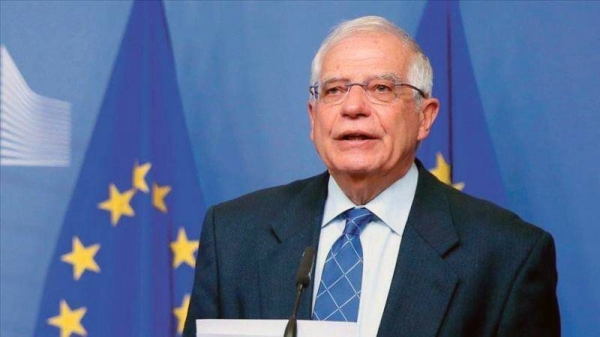“China has already recognized the Taliban. Russia will do it. They are not going to close their embassies there. On the contrary they will increase their presence. And this is going to change the geo-political balance of power
BRUSSELS — The European Union has said developments in Afghanistan with return of Taliban to power would change geo-political balance of power in the region and expressed concern that the influence of China and Russia would increase in the country.
“Current developments are going to have wide ranging impact on regional and international security because what has happened is the most important geo-political event since the Ukraine Crimea’s annexation by Russia,” EU High Representative Josep Borrell told the European Parliament during a debate on Afghanistan.
“China has already recognized the Taliban. Russia will do it. They are not going to close their embassies there. On the contrary they will increase their presence. And this is going to change the geo-political balance of power,” he said.
“We are aware that Turkey, China Russia have a new opportunity to increase their influence. Other countries like Iran, Pakistan, India and all Central Asian nations have to be taken into consideration in our diplomatic reach out. We have to also work closely with the US,” said Borrell.
He repeated his intentions to talk with the Taliban in order to ensure safe evacuation of EU diplomats and their families as well as 400 Afghans who were working for the EU in Kabul.
“We need to establish channels of communication with the current power holders in Kabul. We need to talk to them. But we have to be clear that establishing a channel of communication does not imply in any way the political and international recognition of the Taliban,” stressed the EU foreign policy chief.
“Yes I have to talk to the Taliban but it doesn’t mean recognition at all. For the time being the Taliban are presenting a nice face. The last press conference of the Taliban leaders said don’t worry, we are good guys. But frankly speaking we have to be very cautious,” he said.
He said there are lessons to be drawn from the West’s failure of nation-building in Afghanistan, noting that the US spent $300 million per day on the nation. “We have to ask ourselves what went wrong,” he said.
Borrell said the EU would increase its humanitarian aid to Afghanistan but would stop providing development assistance until “we know who is ruling Afghanistan.”
He told the European Parliament that the first group of 106 members of the EU staff in Afghanistan had been airlifted from the country and had arrived in Madrid, Spain. He added that there are 300 Afghans who worked with the EU still trying to make it to Kabul airport.
Borrell has added that he is sending four more diplomats to the EU embassy in Kabul to try to resolve the situation concerning the 300 stranded people but he has stressed that “we cannot take all Afghan people out of the country.”
The extraordinary meeting was organized by the European Parliament’s Committee on Foreign Affairs, Committee on Development and the Delegation for Relations with Afghanistan.
Earlier, Borrell had said, the European Union recognizes that the Taliban has won the war and, therefore, believes it is necessary to start dialogue with Afghanistan’s new leadership to prevent a humanitarian and migration crises.
“The Taliban have won the war, so we will have to talk with them,” he said. The EU will need to “engage in a dialogue as soon as necessary to prevent a humanitarian and a potential migratory disaster,” Borrell added.
“It is not a matter of official recognition, it is a matter of dealing with them.”
The top EU diplomat also noted that Brussels would support regional countries that will bear the brunt of these developments, facing instability, drug trafficking and uncontrolled migration flows
















